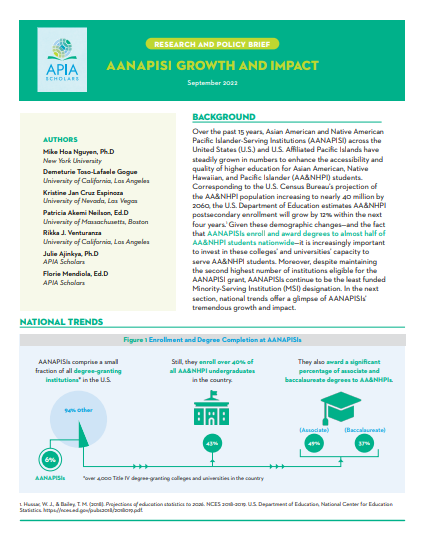APIA Scholars Monthly Newsletter
"(Required)" indicates required fields
"(Required)" indicates required fields

Over the past 15 years, Asian American and Native American Pacific Islander-Serving Institutions (AANAPISI) across the United States (U.S.) and U.S. Affiliated Pacific Islands have steadily grown in numbers to enhance the accessibility and quality of higher education for Asian American, Native Hawaiian, and Pacific Islander (AA&NHPI) students.